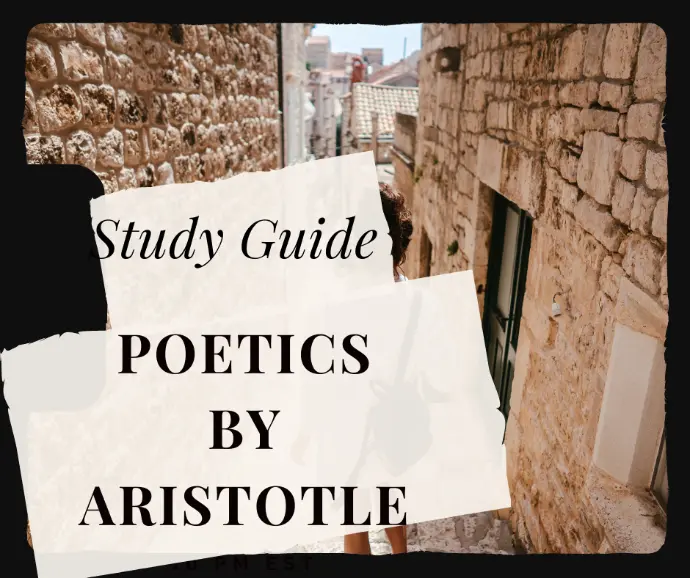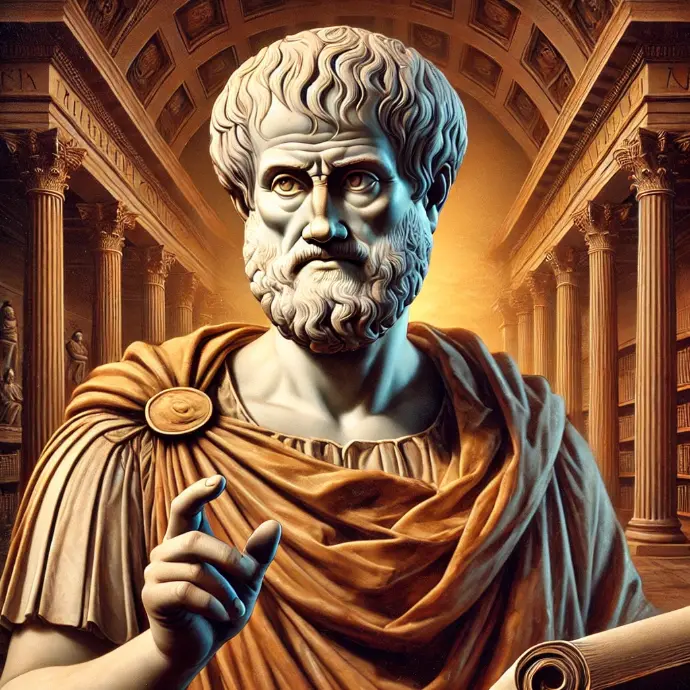
Free Benefits of Our Guide
- Comprehensive Summary
- Key Concepts Explained
- Perfect for Writers & Students
- Free & Easy to Download
- Enhanced Learning
- Improves Critical Thinking
- Essential for Literature Enthusiasts
Free Now. Rs: 99
Free Readings
Aristotle's Poetics (De Potica in Latin) is a Greek dramatic theory. It's the first extent of philosophy.
Introduction
He shows the "Poetic art". As first extent of philosophy, it focuses on literary theory.
He shows the "Poetic art". As first extent of philosophy, it focuses on literary theory. He divides to "Art of poetry" into comedy, tragedy and satiric play.” It is acknowledged in Western critical tradition. This art includes Catharsis, Hamartia and classical unites. It was often lost in Western World, and restored in the middle ages, early renaissance in Italy. Poetics was divided into two books, which separates on a roll of Pepyrus. The first book shows about the tragedy and epic (as quasi-dramatic). Deeply, in the tragedy, it's based on human suffering on a serious event. Overally, it shows the panic and abnormal situation. It exposes "catharsis" or a pain that awakens pleasure.

The first step in the onboarding process is account creation. This involves signing up on our platform using your email address or social media accounts. Once you’ve created an account, you will receive a confirmation email with a link to activate your account. Upon activation, you’ll be prompted to complete your profile, which includes setting up your preferences, adding any necessary payment information, and selecting the initial features or modules you wish to use.
At the second part of the book, Aristotle expresses mainly to Comedy. On the other hand, some scholar reveal the "Tractus Coislinianus" which shows the second part summary. Tragic pleasure, or Catharsis was experienced by pity and fear, which should be produced in the Spectator.
Additional Details
Aristotle has also drown tragic mode and history writing. History deals with contingency, accident or chance.
The characters must be four charms like "good, appropriate,
realistic and consistent." The characters should be visualize
all the scenes. The characters should use the denouncement
and complication within the tragedy. The poet must express
the thought the characters' words and diction, while paying
attraction spoken words.
Epic is included in Tragedy. Aristotle has also drown tragic
mode and history writing. History deals with contingency,
accident or chance. It reduces tragedies to the childish
proportions of Aesop-fables. Aristotle respected Homer so
much that he personally corrected a copy of the Illiad for his
student, Alexander.
Logic
Aristotle often thinks of as a logician, and he often uses the adverbs, Logikos.
Aristotle criticizes orators who write from the heart, rather than intellect. Aristotle often thinks of as a logician, and he often uses the adverbs, Logikos. Poetics is the initial marking out of dramatic poetry form as a form of Imitation. Aristotle was a Greek philosopher who writes "poetics" in the classical period. It was written around 335 BCE. He shows about various types of poetries and mostly he shows about tragedy and epic poetry. On the other hand, Aristotle shows